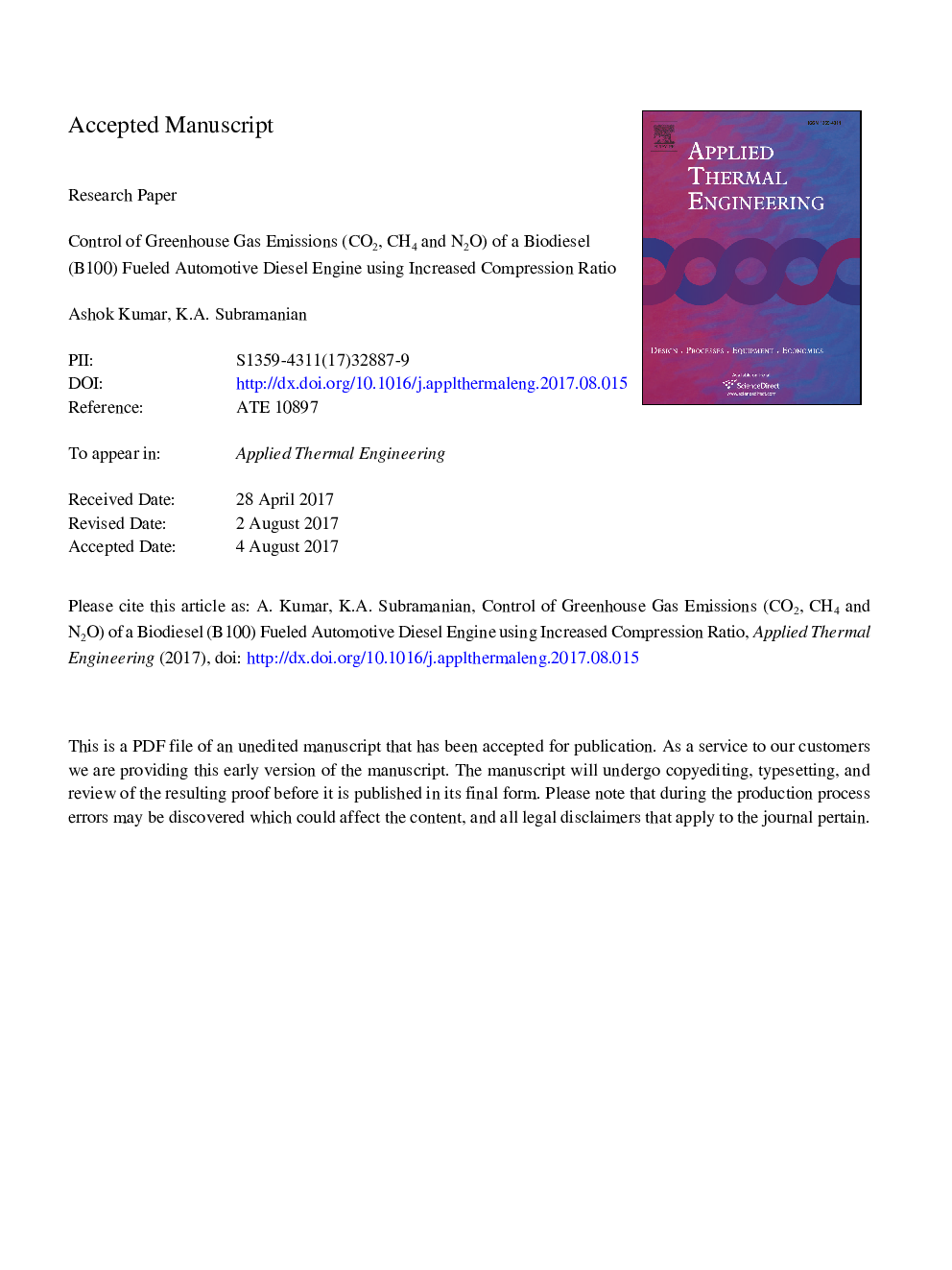| Article ID | Journal | Published Year | Pages | File Type |
|---|---|---|---|---|
| 4990699 | Applied Thermal Engineering | 2017 | 35 Pages |
Abstract
This study deals with the effects of different compression ratios on greenhouse gas emissions (CO2, CH4 and N2O) of an automotive diesel engine. The karanja biodiesel (B100) and Bharat Stage IV (BS-IV) diesel were used for this study. Experimental tests were conducted on the engine fueled with B100 at maximum torque (17Â NÂ m at 2200Â rpm) and maximum power (4.5Â kW at 3000Â rpm) with varied compression ratios (17.3:1, 19:1 (base) and 21.2:1). The experimental tests indicate CO2 emission is higher with B100 whereas N2O and CH4 are less as compared to base diesel but all three emissions decrease with increasing compression ratio. It is observed from the results that N2O emission decreases with increasing in-cylinder temperature and vice versa and N2O is inversely proportional to NOx emission. A salient point emerged from the study is that all three greenhouse gas emissions (CO2, CH4 and N2O) can be reduced with increasing compression ratio of the engine.
Related Topics
Physical Sciences and Engineering
Chemical Engineering
Fluid Flow and Transfer Processes
Authors
Ashok Kumar, K.A. Subramanian,
